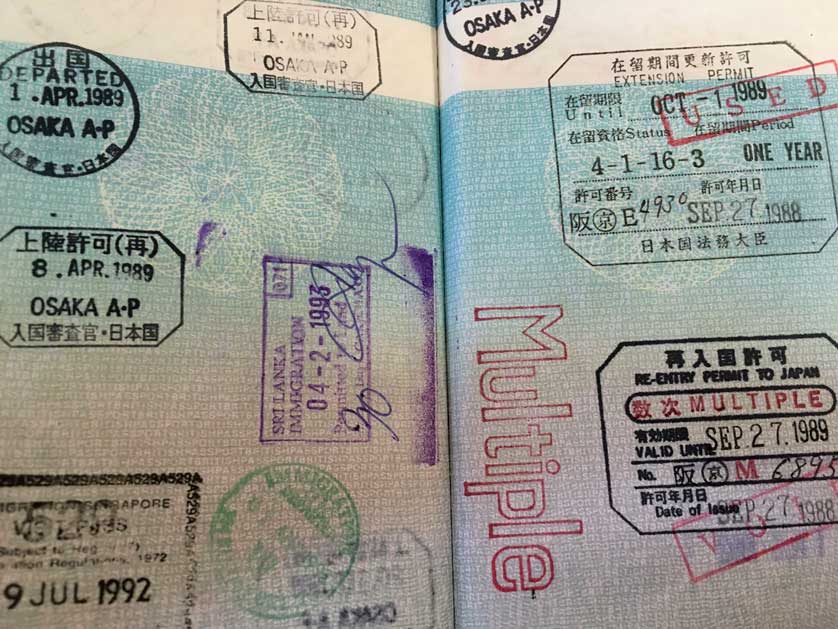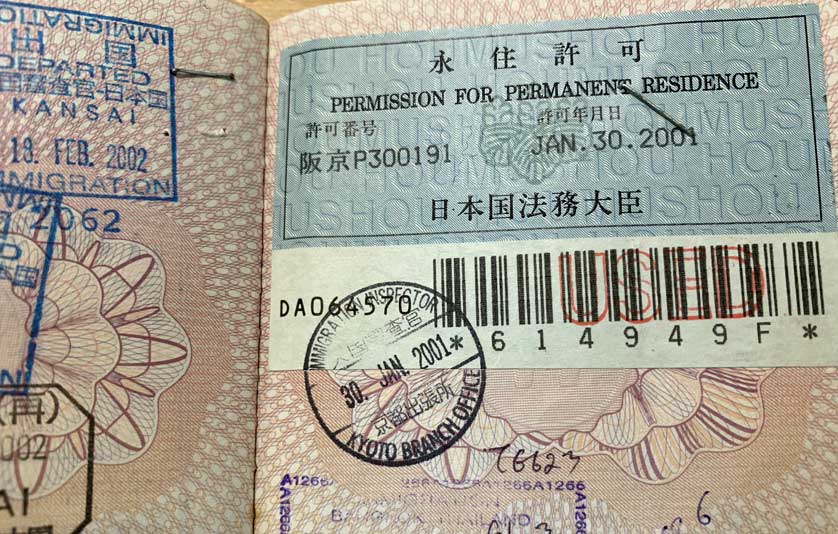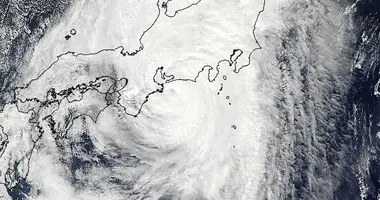Japanese Visa Requirements
Find the necessary requirements and procedures for Japanese tourist visas, spouse visas and work visas.
Tourist Visa Requirements For Japan

Japanese Tourist Visa Requirements ビザ
Visa-Exempt Countries
Currently visitors from 68 countries and regions around the world are exempt from requiring a visa to enter Japan. This includes most European countries, Australia, New Zealand and North America. See a full list of countries exempt from a Japanese visa requirement.
Note that "visa-free" does not mean "stamp-free." It simply means that you don't have to apply for permission at a Japanese embassy before you come here. When a visitor from a visa-exempt country lands in Japan, permission of stay is granted for 90 days, in most cases, for that entry to the country, but only 15 or 30 days for certain nationalities. A stamp is made in the visitor's passport showing port and date of entry and permitted period of stay (see photo above).
Visa-Required Countries
Nationals from other countries have to obtain a visa in advance to enter Japan. These countries include Russia, China, India, Brazil, the Philippines and some other Asian countries, and most Middle Eastern and African countries. Passport photo(s) and a return ticket are usually necessary. Document processing is usually free of charge, although there is a charge for the visa itself. Fees vary according to whether the visa is single entry, multiple entry or transit. Visitors should also ensure that their passport is valid for at least 90 days following their departure date from Japan.
For Russia, NIS countries, China and the Philippines
For nationals of Russia and NIS countries (Armenia, Azerbaijan, Belarus, Georgia, Kazakhstan, Kyrgyzstan, Moldova, Tajikistan, Turkmenistan,
Ukraine and Uzbekistan), China and the Philippines, more complicated requirements are in force and visa applicants should see the relevant pages on the Japanese Ministry of Foreign Affairs website where pdf application forms can be downloaded and printed out.
In general, for nationals of Russia, NIS countries and the Philippines an "inviting person" or guarantor resident in Japan (not necessarily a Japanese national) needs to prepare the extra documents and send them to the applicant in his or her own country, who then makes the visa application at the Japanese embassy or consulate in that country. These documents include a "Purpose of invitation" form, a travel schedule and a letter of guarantee. The guarantor must take on liability for the expenses for the applicant's stay in Japan, return travel expenses, and compliance with Japanese laws and regulations.
Philippine nationals are also required to submit a copy of their birth certificate, marriage contract (if the applicant is married), bank certificate and airline ticket reservation form. For further details see the Japanese embassy in the Philippines website.
Individual Chinese applicants for Japanese tourist visas also need to show evidence of annual income above a certain amount, in addition to the above documentation.
Japan tourist visas for Chinese nationals on group tours are limited to 15 days and procedures are carried out by Chinese travel agencies with a Japanese travel agent acting as guarantor.
Applicants for visas in Japan can also find more information and application forms from the Japanese embassy or consulate in their own countries.
Working Visa Requirements
In general, to engage in work at a school, university or Japanese company, applicants will need to fill out an application form from the Japanese embassy or consulate in their own country.
Visas which allow paid work usually require a Japanese company, school, university or individual to act as sponsor.
The following requirements are necessary for obtaining a working visa for Japan: a valid passport, a recent photograph, a letter from your future employer (or sponsor) stating your position and expected salary, a Certificate of Eligibility, a curriculum vitae, or resume and copies of any necessary graduation certificates.
The Certificate of Eligibility (有資格証明書, yuushikaku shomeisho) is issued by the Japanese Ministry of Justice and verifies that you meet all the requirements for a foreign national coming to Japan. You may apply for a Certificate of Eligibility through your local Japanese embassy, but it is more usual for the sponsor in Japan to apply on the foreign person's behalf, i.e., by proxy, through the local immigration office. Being able to show the immigration officer your Certificate of Eligibility when you land in Japan makes entry easier.
Working visas are normally granted for periods of 1 year or 3 years, except for entertainers where the periods are 3 months, six months and one year and are usually extendable.
Work visas are available in the following categories: Artist, Engineer, Entertainer, Highly skilled foreign professional, Instructor, Intra-company transferee, Investor/business manager, Journalist, Legal/accounting services, Medical services, Professor, Religious activities, Researcher, Skilled labor, Specialist in Humanities/International Services.
Like all other categories of applicant, visiting musicians and accompanying technical staff coming to Japan to perform concerts for a limited period also need a Certificate of Eligibility, unless they are exceptionally well known.
Foreign Embassies & Consulates in Japan

Spouse Visa Requirements
If you marry a Japanese national and wish to apply for a Japanese spouse visa, the following documents must be presented at an immigration office or Japanese embassy or consulate: a valid passport, a spouse visa application form completed and signed, a recent photograph (taken within the past 6 months), an official copy of the Japanese spouse's family register (koseki tohon) available from a ward office and showing your registered marriage, a letter of guarantee from the Japanese spouse, the Japanese spouse's passport or copy, and an official copy of the spouse's certificate of residence (jyuminhyo) available from a local ward office (kuyakusho), plus evidence of financial support (bank statement etc).
Spouse visas are valid for 3 years and must be renewed at your local immigration office or Japanese embassy or consulate overseas.
See our Japan residents section for further information on living and working in Japan.










